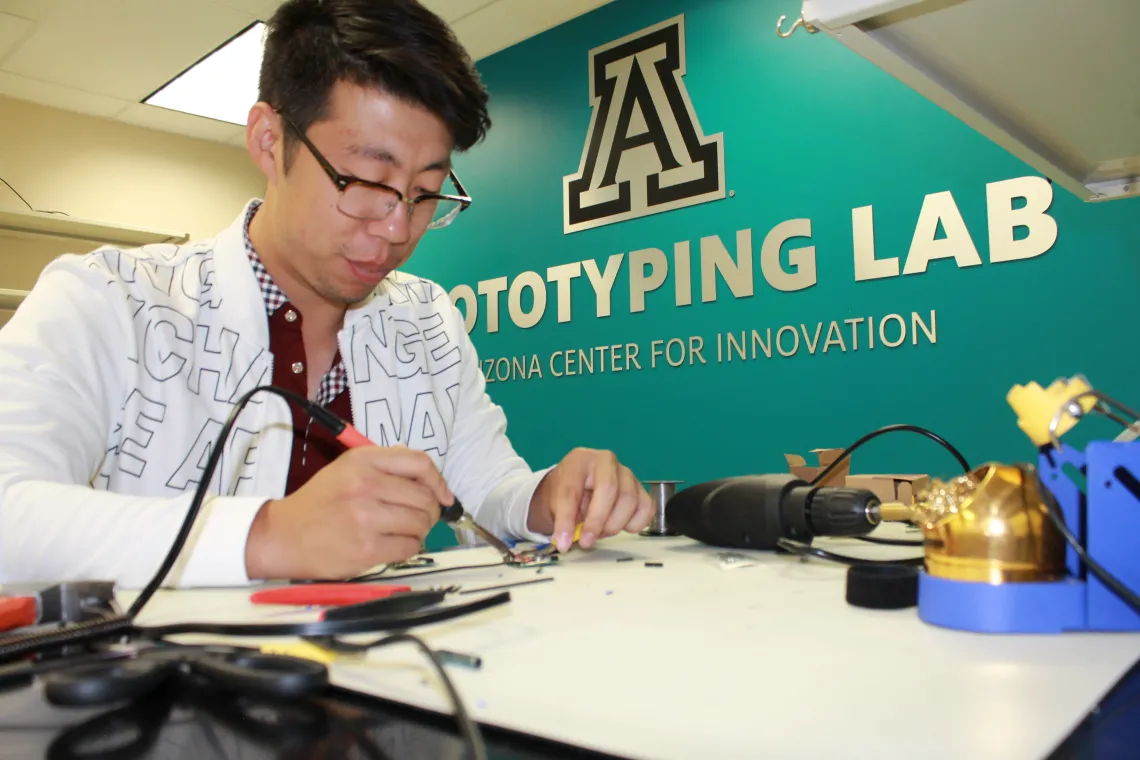Announcing a new collaboration with UACI!
Startup Continuum Pilot Program Between Arizona FORGE and The University of Arizona Center for Innovation

TUCSON, Ariz. - Arizona FORGE and University of Arizona Center for Innovation (UACI) have teamed up for a pilot program to ensure a continuum of startup support services.
The top startups who complete FORGE’s Advanced Entrepreneur Program (AEP) have the opportunity to advance their businesses by entering the structured incubator program at UACI aimed at helping them launch their startup grow and scale. Arizona FORGE's 8-week AEP seed accelerator provides early stage entrepreneurs with an introduction to general business concepts, along with mentorship, community, and the tools needed to initiate a startup. UACI works with multi-stage startups therefore this model represents the next sequential step where people, programming and places help entrepreneurs take their companies from idea to market.
This pilot program is a natural evolution in the growing innovation ecosystem being developed at the University of Arizona.
The entrepreneurial culture within campus has seen rapid momentum and the network of resources available is expanding to meet the growing demand. The University of Arizona serves both the community inside the University as well as the larger Tucson startup community.
UACI has served the region for nearly two decades with support, contributing to Tucson’s strong and vibrant ecosystem of entrepreneurs and innovators. UACI provides a unique value proposition to startups working alongside them through an enhanced program. This 27-point business development roadmap takes startup through a continuum of education provided by mentors, advisors and community collaborators. UACI also provides access to service providers, industry cluster groups, interns and connections to potential customers and strategic partners.
The incubator helps entrepreneurs develop a business plan, identify target markets, refine their prototype, prepare a business pitch presentation, and so much more.
Entrepreneurs also utilize various physical spaces that include offices, wet and dry labs, meeting rooms, a prototyping center, collaboration areas which provide the necessary infrastructure to support scaling businesses.
UACI Executive Director, Eric Smith, states, “Teams that complete the FORGE program will be ensured an opportunity to join UACI and will be prepared for an exciting road ahead. The offerings of UACI provide the next step in startup success.”
FORGE Founding Director, Brian Ellerman, added, "The hallmark of any great startup ecosystem is the collaboration between its partners. From the moment the idea of FORGE was conceived, we knew that partnerships were critical to our success, and the success of our founders. Joining forces with UACI will fill a key gap and is an exciting step in our evolution."
About the UA Center for Innovation
The University of Arizona Center for Innovation (UACI) is a startup incubator network with outposts across the Southern Arizona region and a mission to grow scalable science and technology startup ventures that fuel the Arizona economy. For nearly two decades, the program has directly served over 150 companies and impacted thousands of entrepreneurs. This is done through providing access to people, programming and places that help entrepreneurs take their companies from idea to market. Startups go through a structured program that takes them through a continuum of education provided by mentors, advisors and community collaborators. UACI also provides access to service providers, industry cluster groups, interns and connections to potential customers and strategic partners. Entrepreneurs utilize various physical spaces that include offices, wet and dry labs, meeting rooms, a prototyping center, collaboration areas and the infrastructure to support these spaces. The UACI is part of Tech Parks Arizona, which brings together university, industry and community, creating “interactive ground” to advance technology innovation.
|
This article was originally published by UACI, November 30, 2020. |

